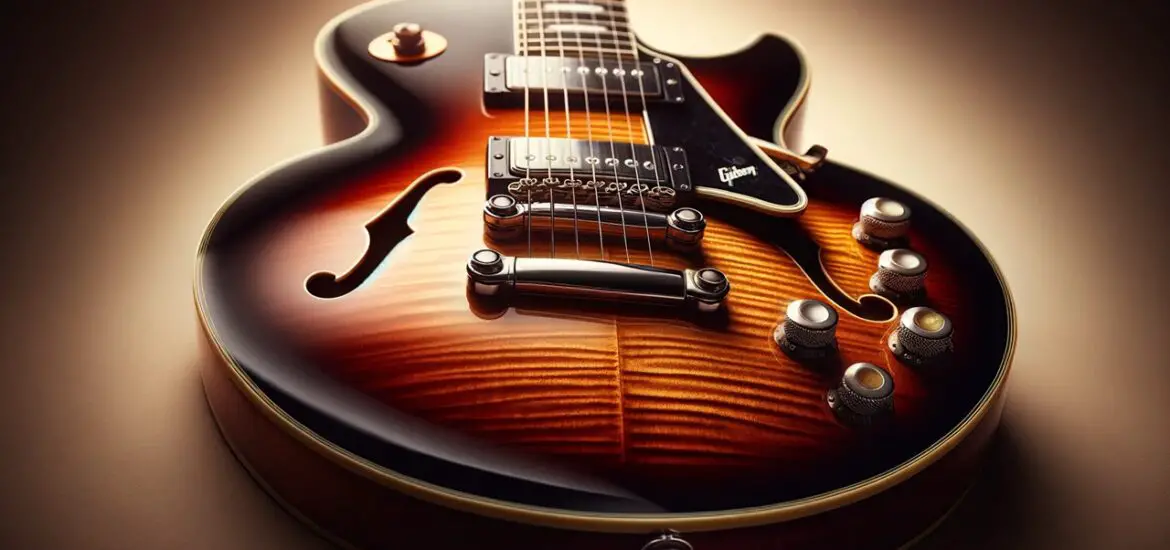If you’re beginning your musical journey or looking to upgrade, understanding what guitar brands are good can significantly impact your choice. This comprehensive guide will walk you through the process of selecting a guitar brand that aligns with your needs, skill level, and budget.

Understanding Guitar Brands: What Guitar Brands Are Good?
When it comes to selecting a guitar, the concept of what makes a brand “good” can be highly subjective and varies greatly depending on individual needs and preferences. Different guitar brands often cater to different styles, sounds, and experiences, making the choice personal.
Personal Preference
Each guitarist has unique tastes and preferences that influence their choice of brand. Some might prioritize the feel of the guitar in their hands, while others may focus on the aesthetic appeal or the heritage of the brand.
For instance, a guitarist who loves the vintage look and warm sound might gravitate towards a Gibson Les Paul, while another who prefers a modern, sleek design with versatile sound capabilities might opt for a Fender Stratocaster.
Playstyle
Your playstyle plays a crucial role in determining which guitar brand suits you best. Different guitar models are designed with certain playstyles in mind. For example, brands like Ibanez and Jackson are renowned for their fast necks and lightweight bodies, making them popular choices among shredders and metal guitarists.
On the other hand, brands like Martin and Taylor are sought after for their rich, resonant acoustic tones, ideal for fingerstyle players and singer-songwriters.
Music Genre
The genre of music you play can greatly influence your choice of guitar brand. Different brands are known for excelling in specific genres.
For instance, Fender Telecasters and Stratocasters have been staples in blues, country, and rock due to their bright and versatile tones. Meanwhile, Gibson’s Les Pauls and SGs are often associated with rock and heavy metal due to their thicker, heavier tones.
However, it’s important to note that some brands have built a reputation over the years for their consistent quality and reliability, transcending personal preferences and genres.
Brands like Fender, Gibson, Martin, and Taylor, for instance, are renowned for their craftsmanship, quality of materials, and overall sound quality, making them trusted choices among a wide range of guitarists.
Identifying Your Needs
When choosing a guitar, a critical first step is to assess your individual needs, which can be largely determined by your skill level and the specific requirements or expectations you have from your guitar.
Skill Level
If you are a beginner, you might look for guitars that are easier to play and more forgiving as you develop your skills. Factors such as the ease of pressing down on the strings, the comfort of the neck, and the guitar’s overall playability are important.
Beginner-friendly brands like Yamaha and Fender offer models that are not only affordable but also designed to provide a comfortable learning experience.
Desired Sound
For more experienced players, the sound quality and specific tonal characteristics of a guitar become paramount. You might seek a guitar that offers a rich, deep tone suitable for jazz, a bright and twangy sound for country, or a distorted, heavy sound for rock and metal.
This pursuit might lead you towards certain brands known for these qualities. For example, Gibson and PRS are often praised for their rich, warm tones suitable for blues and rock, while Ibanez is favored for its sharp, clear sound ideal for metal and progressive genres.
What Guitar Brands Are Good? – Top Brands for Beginners
Embarking on your journey to learn the guitar is an exciting venture, and choosing the right instrument is a crucial step. For beginners, finding a guitar that balances quality, affordability, and playability is key.
Brands like Yamaha and Fender are renowned for offering guitars that meet these criteria, making them excellent choices for those just starting out.
Yamaha
Yamaha is a brand synonymous with producing high-quality musical instruments, and their guitars are no exception. For beginners, Yamaha offers several advantages:
Durability: Yamaha guitars are built to last. They are known for their robust construction, which means they can withstand the occasional bumps and knocks that are often part of a beginner’s learning process.
Clear Sound: One of the distinguishing features of Yamaha guitars, especially their acoustic models, is their clear, balanced sound. This clarity is crucial for beginners as it helps in developing an ear for notes and chords.
Comfortable Playability: Yamaha guitars often have a comfortable neck and action (the distance between the strings and the fretboard), which is less straining on the fingers. This feature is particularly beneficial for beginners who are still building up their finger strength and dexterity.
Variety of Options: Yamaha offers a wide range of models, from classical to acoustic and electric guitars, allowing beginners to choose according to their musical preferences and style.
Fender
Fender is another excellent choice for beginners, thanks to its rich history and reputation in the guitar world. Their beginner-friendly models offer several benefits:
Range of Models: Fender provides a variety of models suitable for newcomers. This includes their Squier line, which is specifically designed to be more affordable while still offering the classic Fender quality and sound.
Ease of Play: Fender guitars, particularly their electric models like the Stratocaster and Telecaster, are known for their comfortable necks and easy playability. This ease of play is essential for beginners, as it allows for longer practice sessions without discomfort.
Versatile Sound: Fender guitars are celebrated for their bright, clean tones. They are incredibly versatile, making them suitable for a variety of genres, from rock and blues to jazz and country. This versatility is beneficial for beginners who are still exploring their musical tastes.
Stylish Design: In addition to their sound and playability, Fender guitars are also known for their iconic and appealing designs, which can be a source of inspiration and pride for beginner guitarists.
Read more guitar topics here – Common Guitar Questions: Guide to “What” Guitar Questions
What Guitar Brands Are Good? – Brands for Intermediate to Advanced Players

As you progress in your guitar playing journey, moving from beginner to an intermediate or advanced level, your needs and preferences in a guitar will naturally evolve.
You might start seeking instruments that offer richer tones, greater versatility, or a specific type of sound that aligns with your refined skills and musical style. At this stage, brands like Gibson and Ibanez become highly relevant choices, each bringing their unique qualities to the table.
Gibson
Gibson stands as a titan in the guitar world, renowned for its history, quality, and the distinct, rich tones its guitars produce. Here are some aspects that make Gibson a favored choice for more experienced players:
Rich, Warm Tones: Gibson guitars, particularly their electric models like the Les Paul and the SG, are celebrated for their deep, warm tones. These rich sounds make Gibson guitars particularly well-suited for genres like blues and rock, where a full-bodied sound is often desired.
Quality Craftsmanship: Gibson guitars are known for their high-quality craftsmanship. From the choice of wood to the construction and finishing, a great deal of attention is paid to every detail, ensuring that the guitar not only sounds great but also feels premium.
Iconic Designs: Gibson guitars boast some of the most iconic designs in guitar history. Owning a Gibson often means holding a piece of musical history, which can be a significant factor for many advanced players.
Cultural Legacy: The association of Gibson guitars with legendary musicians across generations adds to their appeal. Many advanced players are inspired by the tones and styles of famous guitarists who favored Gibsons.
Ibanez
Ibanez, another prominent name in the guitar manufacturing world, offers a different appeal. Known for its sleek designs and versatile range of sounds, Ibanez guitars are a popular choice among a diverse group of musicians. Here’s why:
Sleek and Modern Designs: Ibanez guitars are known for their modern, sleek designs. Their bodies are often more contoured and streamlined compared to traditional models, which many players find aesthetically pleasing and comfortable to play.
Versatility: Ibanez guitars are highly versatile. They are capable of producing a wide range of tones, suitable for various genres from metal and rock to jazz and blues. This versatility is especially appealing to intermediate and advanced players who enjoy experimenting with different styles.
Innovative Features: Ibanez is known for incorporating innovative features in their guitars, such as fast necks, advanced tremolo systems, and diverse pickup configurations. These features can greatly enhance playability and sound customization, appealing to players who are looking to push the boundaries of their guitar playing.
Affordable Quality: Despite their high quality, Ibanez guitars often come at a more accessible price point compared to some other high-end brands. This affordability, combined with their quality and versatility, makes them an attractive option for players looking to upgrade without breaking the bank.
Considering Acoustic and Electric Varieties
When delving into the world of guitars, one of the key decisions you’ll face is choosing between an acoustic and an electric guitar. This choice significantly influences the kind of music you can play and the sound you produce.
Let’s look at some renowned brands in both categories, focusing on Taylor and Martin for acoustics, and PRS and Gretsch for electrics, to understand what makes each of them stand out.
Acoustic Guitars – Taylor and Martin
Let’s look at Taylor and Martin guitars first…
Taylor Guitars
Known for their modern design and innovative approach, Taylor guitars are a top choice for players seeking high-quality acoustic guitars. Here’s why:
Bright and Clear Sound: Taylor guitars are celebrated for their bright, clear sound. They have a distinct tonal clarity that makes them suitable for a variety of music styles, particularly where clarity of notes is crucial.
Playability: Taylors are often praised for their playability. They tend to have a slimmer neck and lower action, which can be more comfortable, especially for beginners or players with smaller hands.
Innovative Design: Taylor is known for its innovative design features, such as the patented NT neck, which enhances the guitar’s stability and playability. They are also at the forefront of using sustainable materials in their instruments.
Versatility: Whether you’re playing fingerstyle, strumming chords, or leading a band, Taylor guitars offer versatility to suit different playing styles.
Martin Guitars
Martin is a legendary name in the acoustic guitar world, known for its tradition and the warm, rich sound of its guitars. Here’s what makes Martin special:
Warm, Rich Tones: Martin guitars are famous for their rich, warm tones, which have made them a staple in genres like folk, country, and blues.
Quality Craftsmanship: With a history dating back to the 19th century, Martin has a long-standing reputation for high-quality craftsmanship. Their guitars are known for their durability and excellent build quality.
Iconic Models: Owning a Martin is often seen as owning a piece of history, with iconic models like the D-28 and the OM series that have been played by countless legendary musicians.
Electric Guitars – PRS and Gretsch
Now let’s look at PRS and Gretsch electric guitars…
PRS (Paul Reed Smith) Guitars
PRS guitars blend modern aesthetics with high-quality craftsmanship, offering a range of unique styles and tones. Here’s why they’re a top choice:
Versatile and Rich Sound: PRS guitars are known for their versatility. They can produce rich, warm tones as well as crisp, clear sounds, making them suitable for various music genres.
Artistic Design: PRS guitars often feature artistic designs with beautiful finishes and unique inlays. They are as much a visual art piece as they are a musical instrument.
Innovative Features: From their custom-designed pickups to the patented tremolo system, PRS guitars are equipped with innovative features that enhance playability and sound quality.
Gretsch Guitars
Gretsch is synonymous with unique style and sound, especially popular among players interested in rockabilly, jazz, and classic rock. Here’s what sets Gretsch apart:
Distinctive Tone: Gretsch guitars have a distinctive tone, often described as jangly and bright, which is particularly beloved in genres like rockabilly and classic rock.
Retro Aesthetics: Known for their retro aesthetics, including big-bodied designs and unique color schemes, Gretsch guitars stand out visually on any stage.
Historical Legacy: Owning a Gretsch also means connecting to a rich musical history, with famous musicians like George Harrison and Chet Atkins having used Gretsch guitars.
Exploring Boutique Brands: What Guitar Brands Are Good?

In your guitar selection journey, exploring boutique brands can be a thrilling endeavor. Boutique guitar makers like Rickenbacker and Collings present a different realm of craftsmanship, uniqueness, and quality, albeit often at a higher price point.
Let’s delve into what makes these boutique brands stand out and why they might be worth the investment.
Rickenbacker
Unique Sound and Style: Rickenbacker guitars are famed for their distinctive jangly sound, which has been a signature in various music genres, notably in classic rock and pop. The Beatles’ George Harrison famously used a Rickenbacker, contributing to its iconic status.
Craftsmanship: These guitars are known for their exceptional build quality. Rickenbacker takes pride in their meticulous craftsmanship, ensuring each guitar is a work of art.
Innovative Features: Rickenbacker has been a pioneer in guitar technology, including the use of stereo output in their instruments. This innovation allows for more complex and versatile sound production.
Collector’s Item: Due to their unique style and historical significance, Rickenbacker guitars often hold their value well, making them a good investment for collectors.
Collings
High-Quality Materials: Collings guitars are renowned for their use of top-quality woods and materials. This attention to detail in materials contributes to their superior tone and longevity.
Customization: One of the appealing aspects of Collings guitars is the level of customization available. They offer numerous options for wood types, finishes, and other specifications, allowing you to have a guitar that feels truly personalized.
Handcrafted Excellence: Each Collings guitar is handcrafted with a remarkable level of attention to detail. This results in instruments with exceptional playability and aesthetic beauty.
Versatility: Whether you’re looking for a powerful acoustic guitar or a smooth-sounding electric, Collings offers a variety of models to suit different playing styles and preferences.
Where to Test and Buy
Once you’ve considered your options and have a clearer idea of what you’re looking for, the next step is to test these guitars. Here’s how you can proceed:
Visit Music Stores: Going to a music store allows you to physically handle and play various guitars. This experience is invaluable as it gives you a real sense of the guitar’s feel, weight, balance, and sound.
Try Different Models: Don’t limit yourself to one or two guitars. Try a range of models to understand the differences in sound, feel, and playability.
Ask Questions: Utilize the knowledge of the store staff. They can provide insights into the guitars’ features, maintenance tips, and more.
Take Your Time: Spend enough time with each guitar. Playing a few chords isn’t enough to understand a guitar’s character. Play different types of music and listen to how the guitar responds.
Online Research: If you can’t find a specific model in your local stores, online research can be helpful. Look for reviews, video demonstrations, and forums where musicians discuss their experiences with these guitars.
Online Purchases: If you decide to buy online, ensure it’s from a reputable dealer with a good return policy. This is especially important for high-end boutique guitars, as you’ll want the assurance of quality and the option to return if it doesn’t meet your expectations.
Conclusion: What Guitar Brands Are Good?
Understanding what guitar brands are good requires research and firsthand experience. Consider your needs, test different models, and don’t hesitate to ask for recommendations from more experienced musicians.
